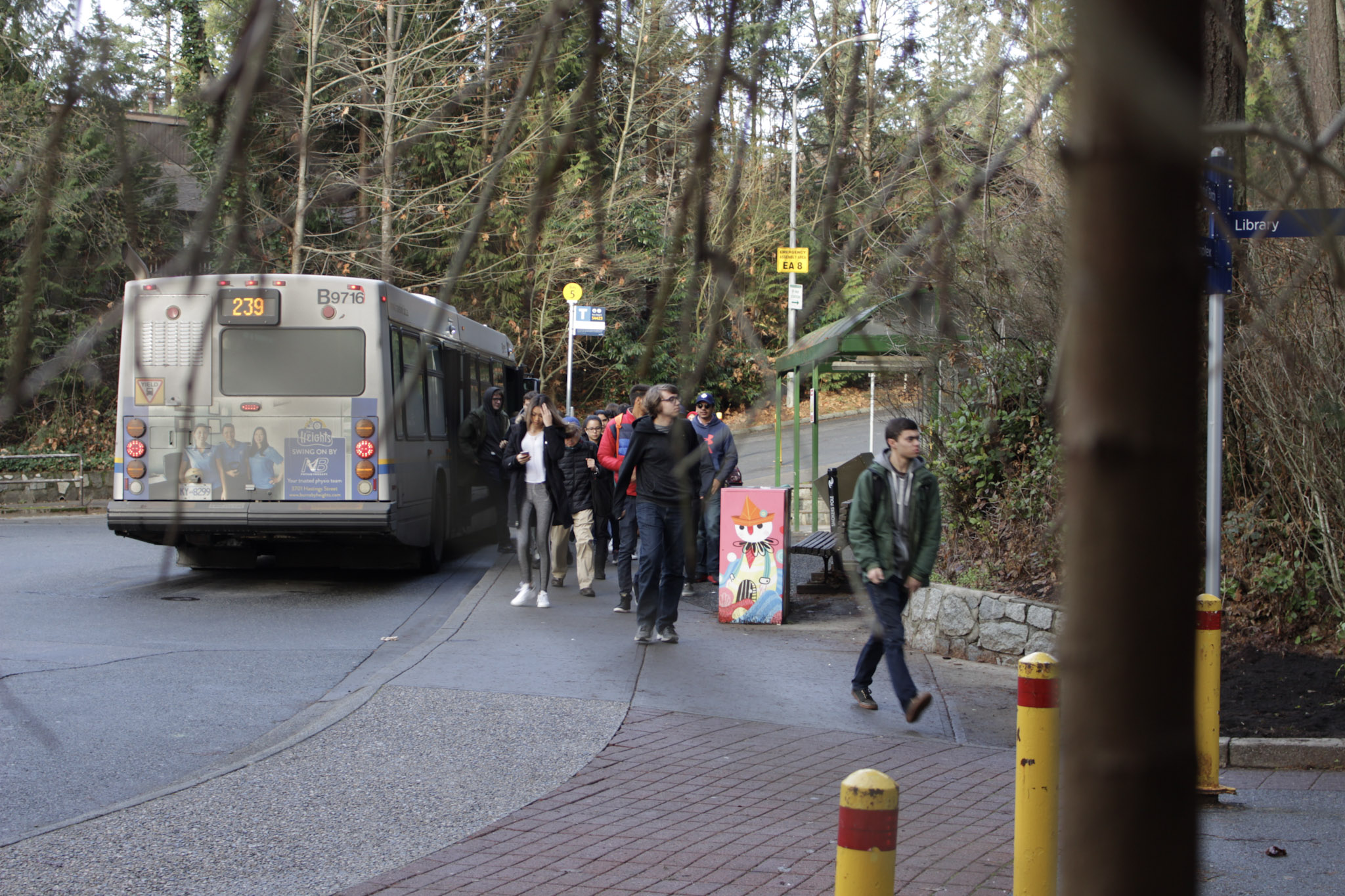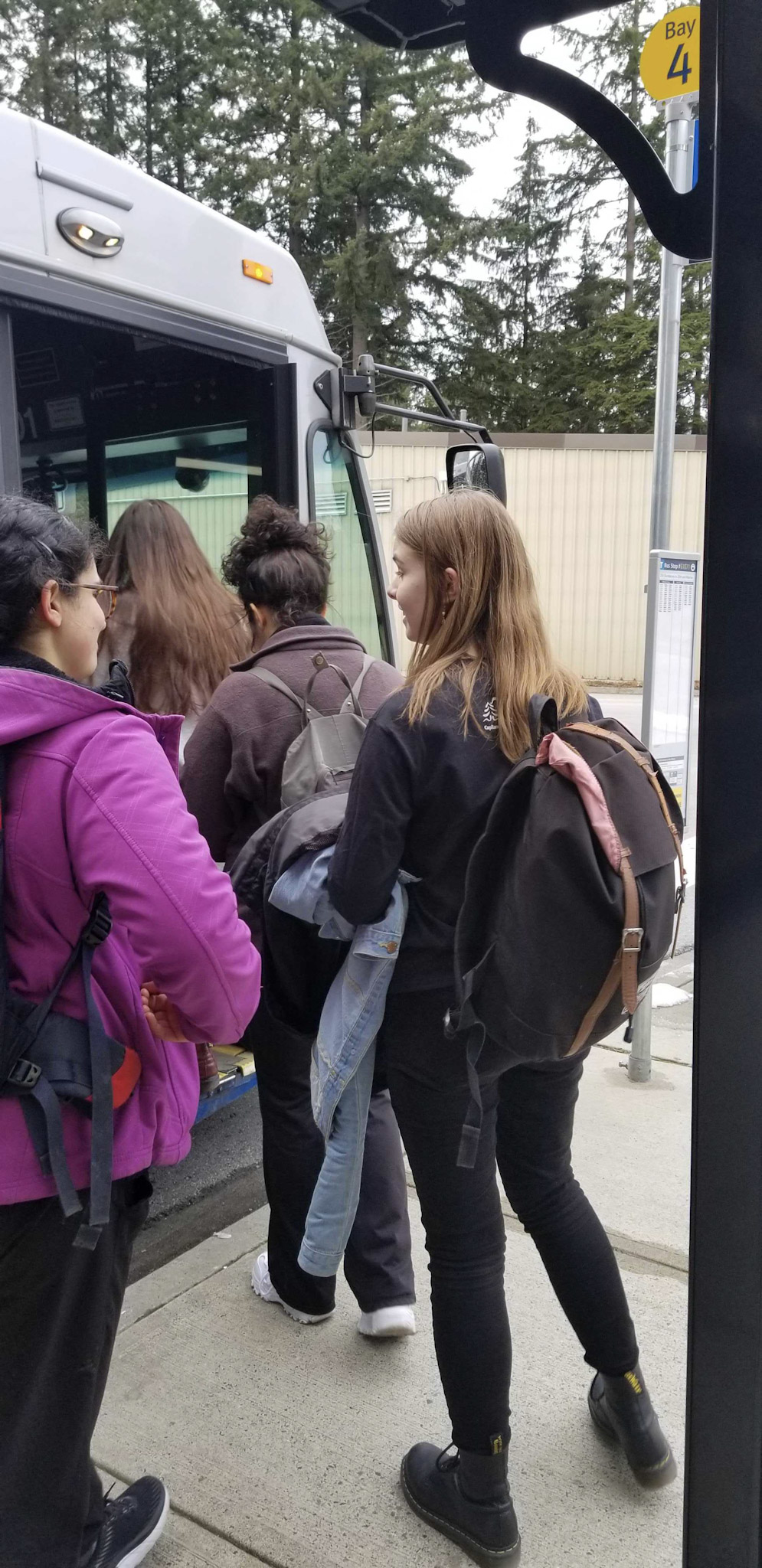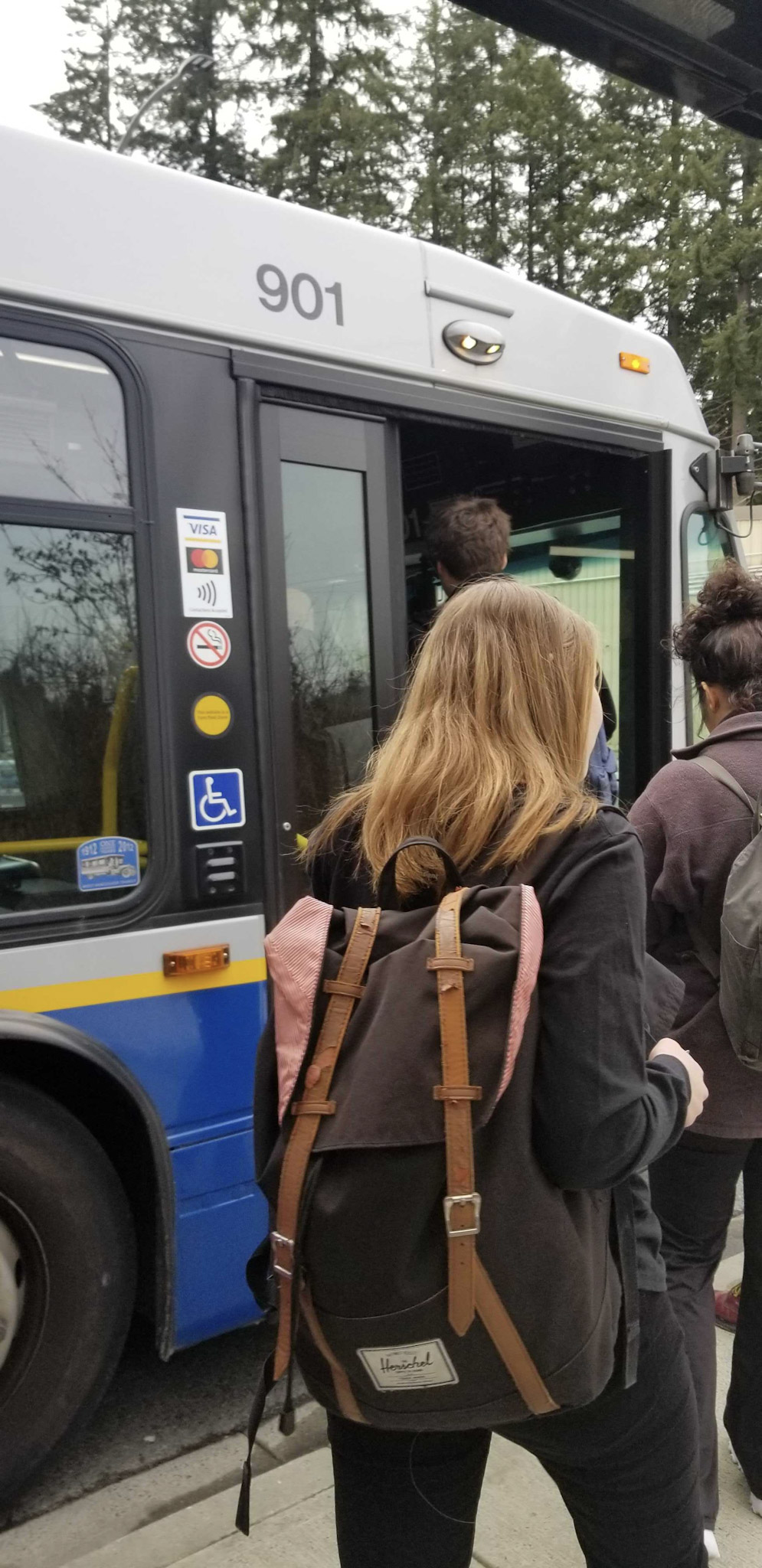U-Pass BC Program
The U-Pass BC program provides all CSU members taking classes on the North Vancouver campus with unlimited access to transit in the Metro Vancouver region. This includes all bus routes, SkyTrain, and SeaBus. It also gives access to discounts on West Coast Express fares. The U-Pass BC program, including the fee, has been approved by Capilano University students in a referendum.
How The U-PASS BC Programs Works
The U-Pass BC program is jointly funded by TransLink, the provincial government, and a mandatory student U-Pass BC fee is collected each semester. The U-Pass BC fee is automatically added to your student account when you are registered in one or more on-campus credit classes and must be paid at the same time as your fees and tuition.
The program is mandatory for all eligible Capilano students taking in-person classes and provides unlimited, all-zone access to public transit in Metro Vancouver at a significantly reduced cost.
All students, with limited exceptions, will be assessed a mandatory U-Pass BC fee who:
- Are CSU fee-paying members
- Attend in-person classes with a course load totalling three or more credits
- Are full-time or part-time students who are registered in an in-person course lasting at least three consecutive weeks
Program Exemptions & OPT-OUTS
The U-Pass BC program agreement is structured as a universal and mandatory program for students at participating post-secondary institutions, and it is this universal model that makes the affordability of the U-Pass BC program possible. For students who rely on the U-Pass BC program, this means savings of up to $538 on transit passes every single semester.
Certain students are exempt from the U-Pass BC program, including students with disabilities that preclude the use of conventional transit or HandyDART services, students who hold another transit pass for the entire semester, or students who have a valid U-Pass BC from another post-secondary institution.
Students registered online in courses coded as “online”, and students taking only non-credit courses, are not eligible for the U-Pass BC.
For more information on exemptions, including application forms, click here.
COST
The U-Pass is one of CSU’s most popular initiatives, so much so that the most recent referendum on its continuation passed with over 84% of valid votes cast in favor. The U-Pass BC fee is be assessed as follows:
- $44.20 per month starting May 1, 2022
- $45.10 per month starting May 1, 2023
- $46.00 per month starting May 1, 2024
HISTORY
As a part of the provincial government’s green initiative, TransLink sponsored the Universal Bus Pass Program (U-Pass) to increase ridership on public transit. Capilano University students first voted for the U-Pass in October 2007, with 87% in favour of the U-Pass Program. Since then, Capilano students have voted overwhelmingly in favour of keeping the U-Pass every time a vote on its continuation taken place.
FUN FACT: Between 2003 and 2010, the U-Pass Program has been responsible for reducing greenhouse gas emissions by about 36,000 tonnes. This is the equivalent of removing 7,200 cars from the road. We are excited to build on this success. With the inclusion of all public post-secondary institutions in the program, the environmental and social benefits will continue to grow. Just think about how many emissions have been reduced since ALL of the public post-secondary institutions in the Lower Mainland joined the U-Pass BC program in 2011!



